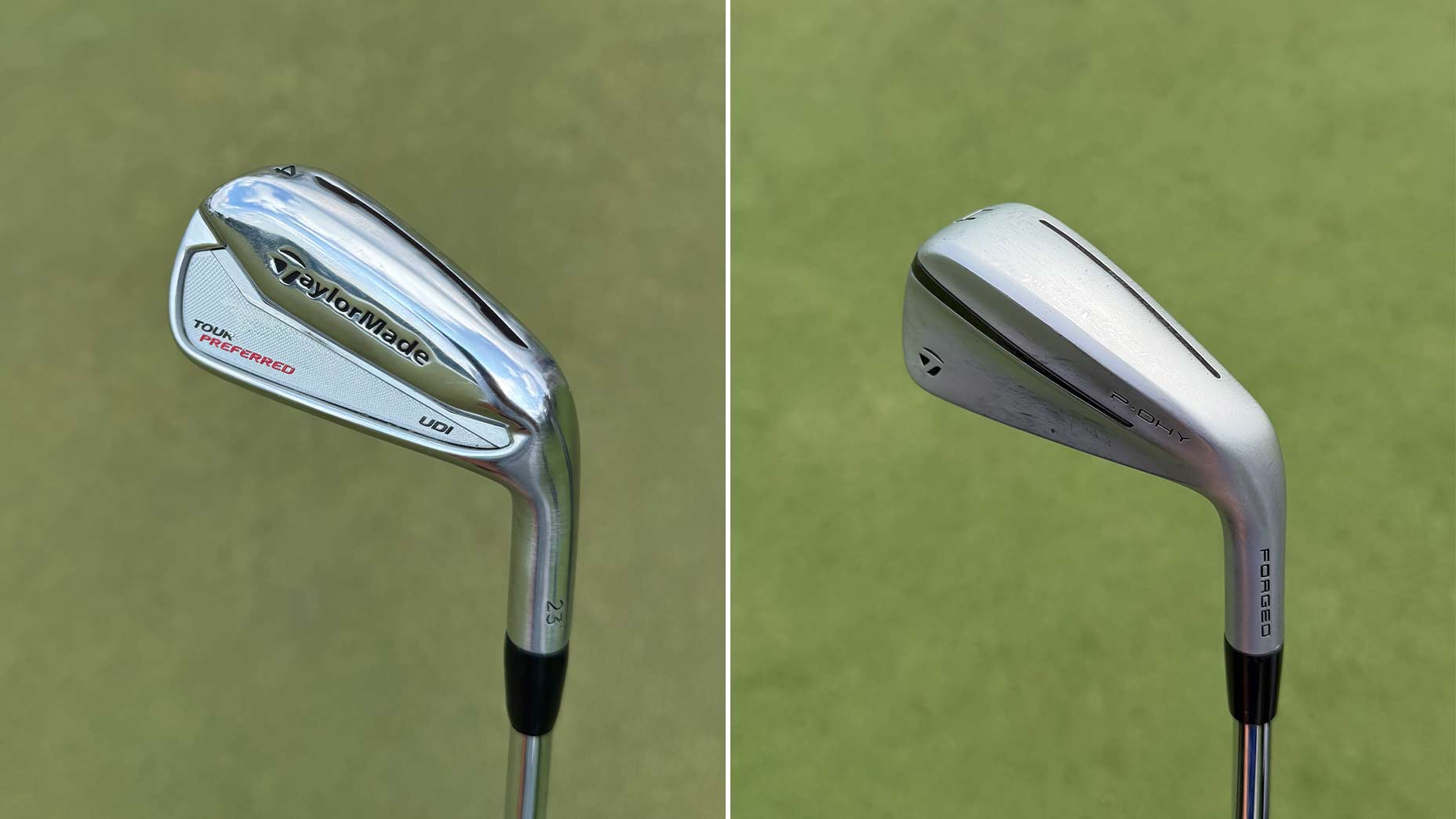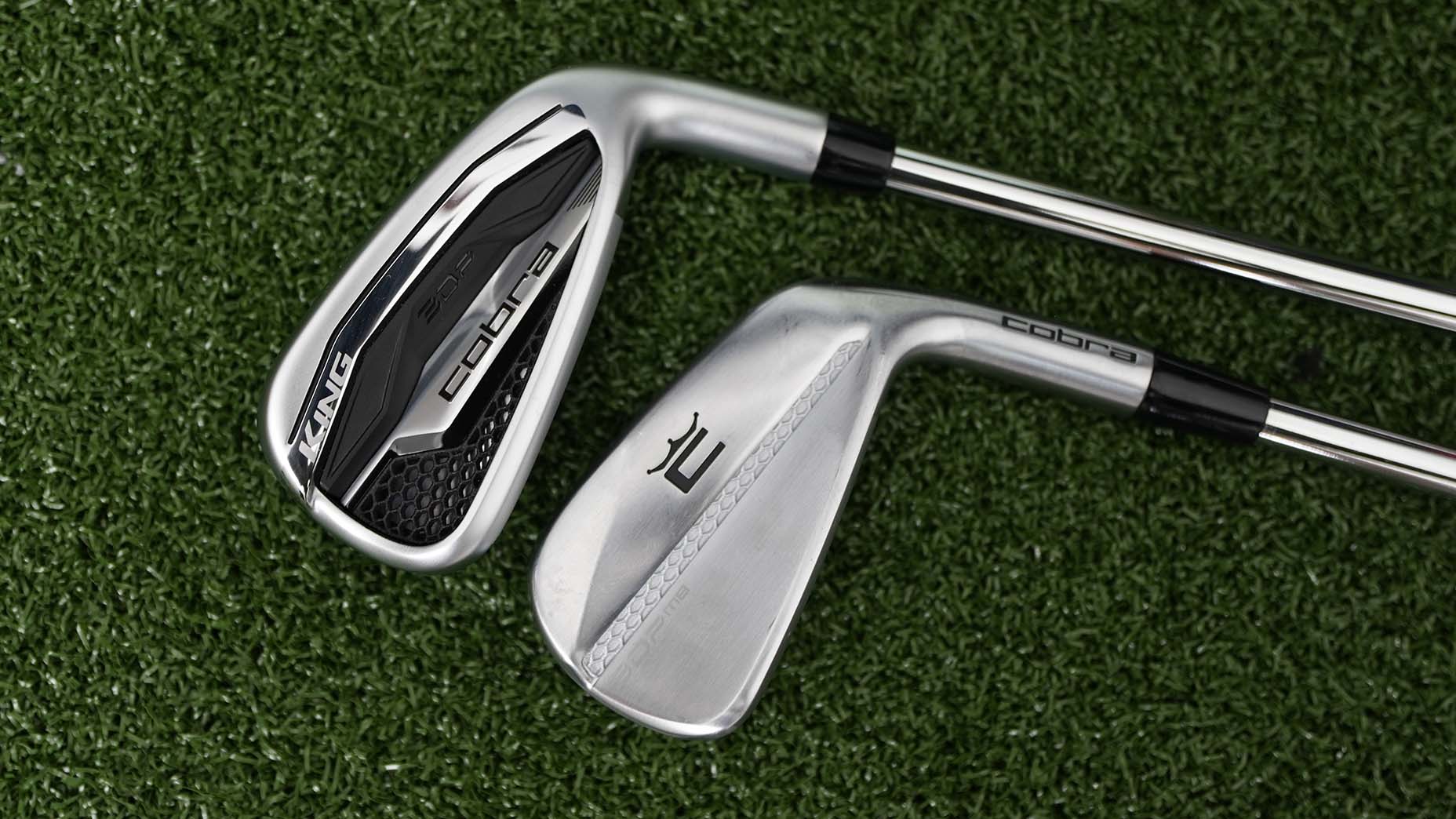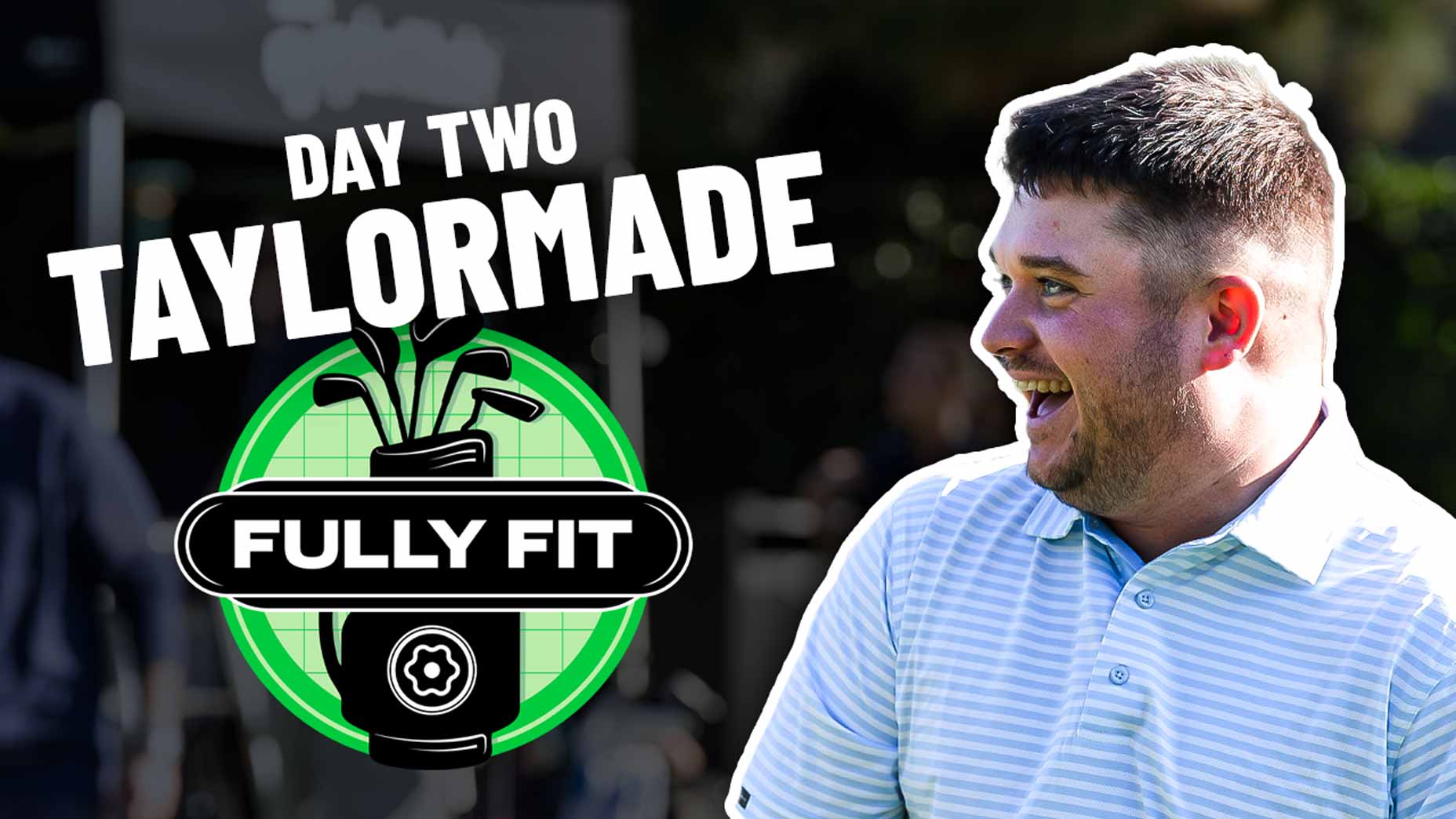Realizing not everyone has the time to consume every piece of content on club launch days, we’re trying something different and offering a fresh version of our detailed tech write-ups that hits the high points. Here’s what you need to know about TaylorMade’s P790 irons.
These are for all
Earlier this year, Brooke Henderson won an LPGA event with a full set of TaylorMade P790 irons. It was a big moment for the hottest iron category in the industry — player’s distance. Designed for golfers who still need forgiveness and ball speed but don’t necessarily want to go up in size to reap the benefits, irons like P790 make it possible to get it all.
The latest P790 builds on the success of the original released in 2017.
SHOP HERE: TaylorMade P790 irons
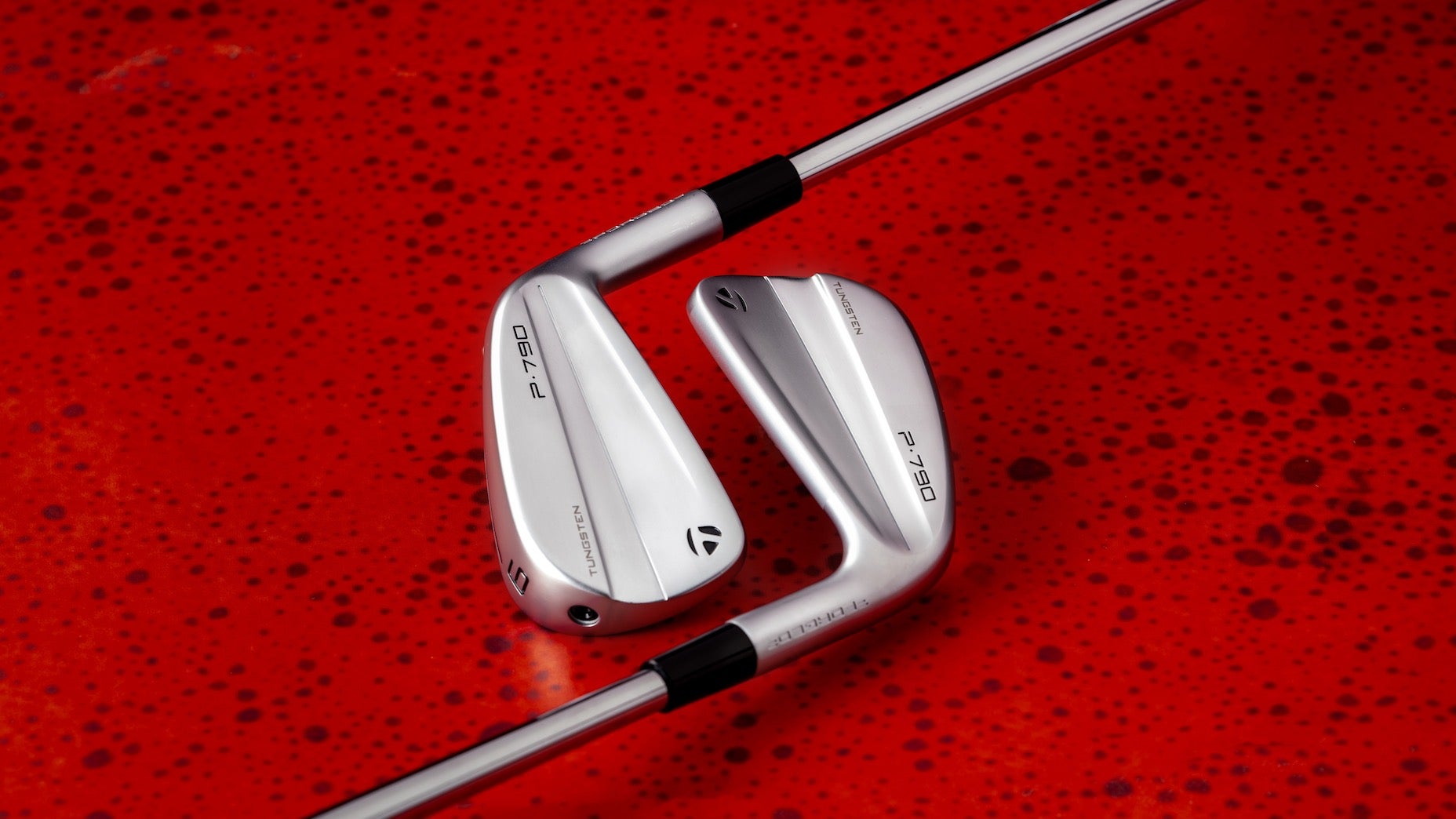
TaylorMade’s 2023 P790
“What separates P790 from the pack is the fact it looks great, sounds great, feels great — and performs,” said Matt Bovee, TaylorMade’s director of product creation, irons. “That’s why such a wide array of players wants to play them. We have Tour champions, like Brooke, and Hall of Famers, like Nick Faldo, asking for them. Anybody that’s aspirational about where their game is headed will appreciate the compact look with a little bit of help when you do miss.”
Yes, the overall look of P790 has changed, but the iron continues to deliver the same combination of forgiveness, feel and speed — in a compact shape with a hollow cavity featuring TaylorMade’s SpeedFoam Air — many golfers have come to rely upon in recent years.
Thick and thin
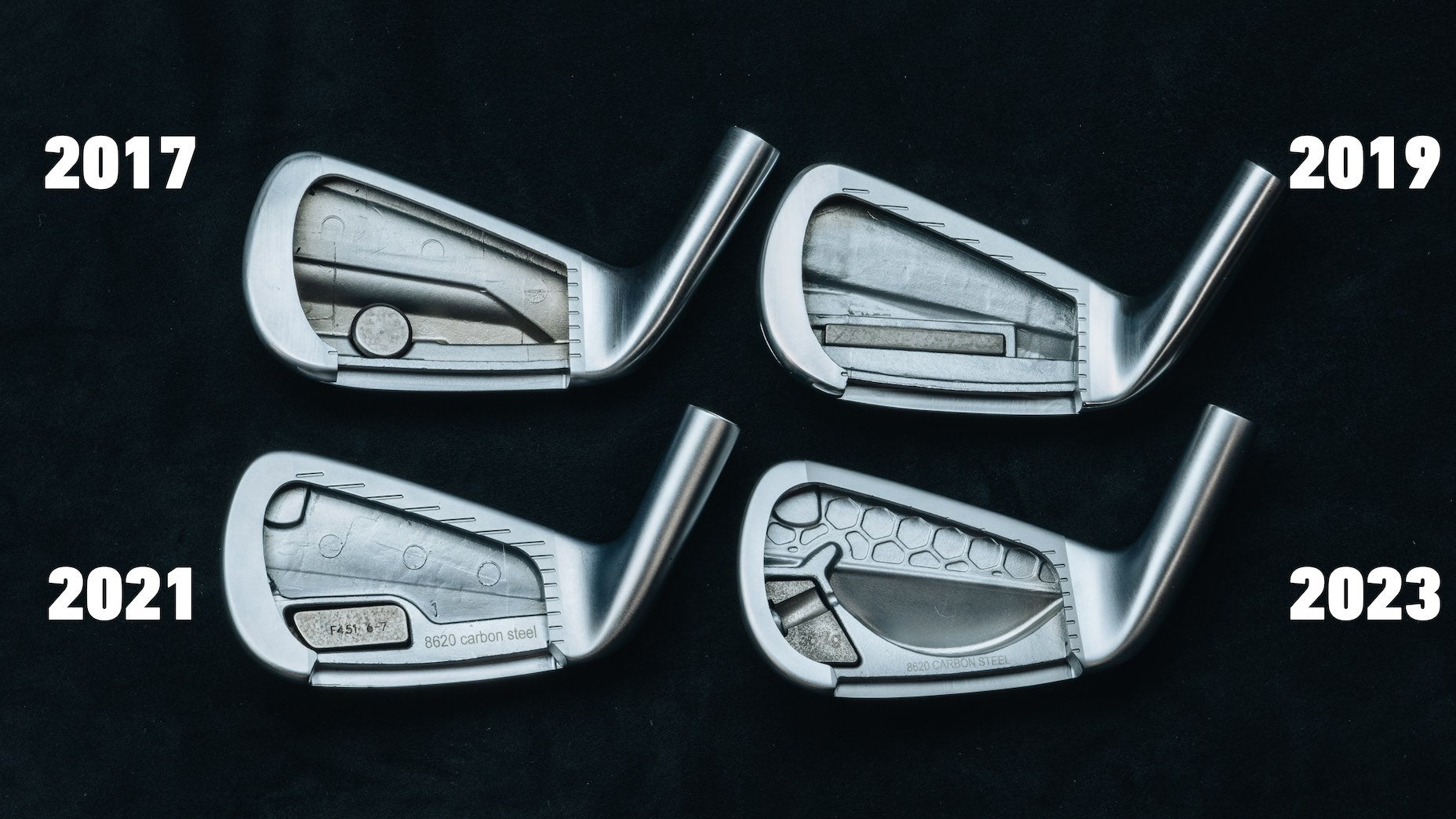
In the steel-titanium construction days, TaylorMade drivers featured a thick-thin titanium geometry to free up discretionary mass within the head. The design allowed engineers to improve the club’s Moment of Inertia properties without raising the center of gravity.
Look closely at the upper section of the internal iron cavity and you’ll find a similar design.
“We’re doing the same thing with P790, moving mass to areas where it will have more benefit to the golfer,” Bovee said. “Sometimes that might mean lower in the head. Other times it’s to the periphery to make the iron more stable. In the case of the 7-iron, you see a very clear heel-toe weight distribution. The goal here is consistency.”
According to Bovee, the thick-thin design changes slightly throughout the set to optimize the overall performance of each iron. Roughly four grams of discretionary weight was netted to enhance several important aspects of the iron that can only be seen from the inside.
Mr. Robot
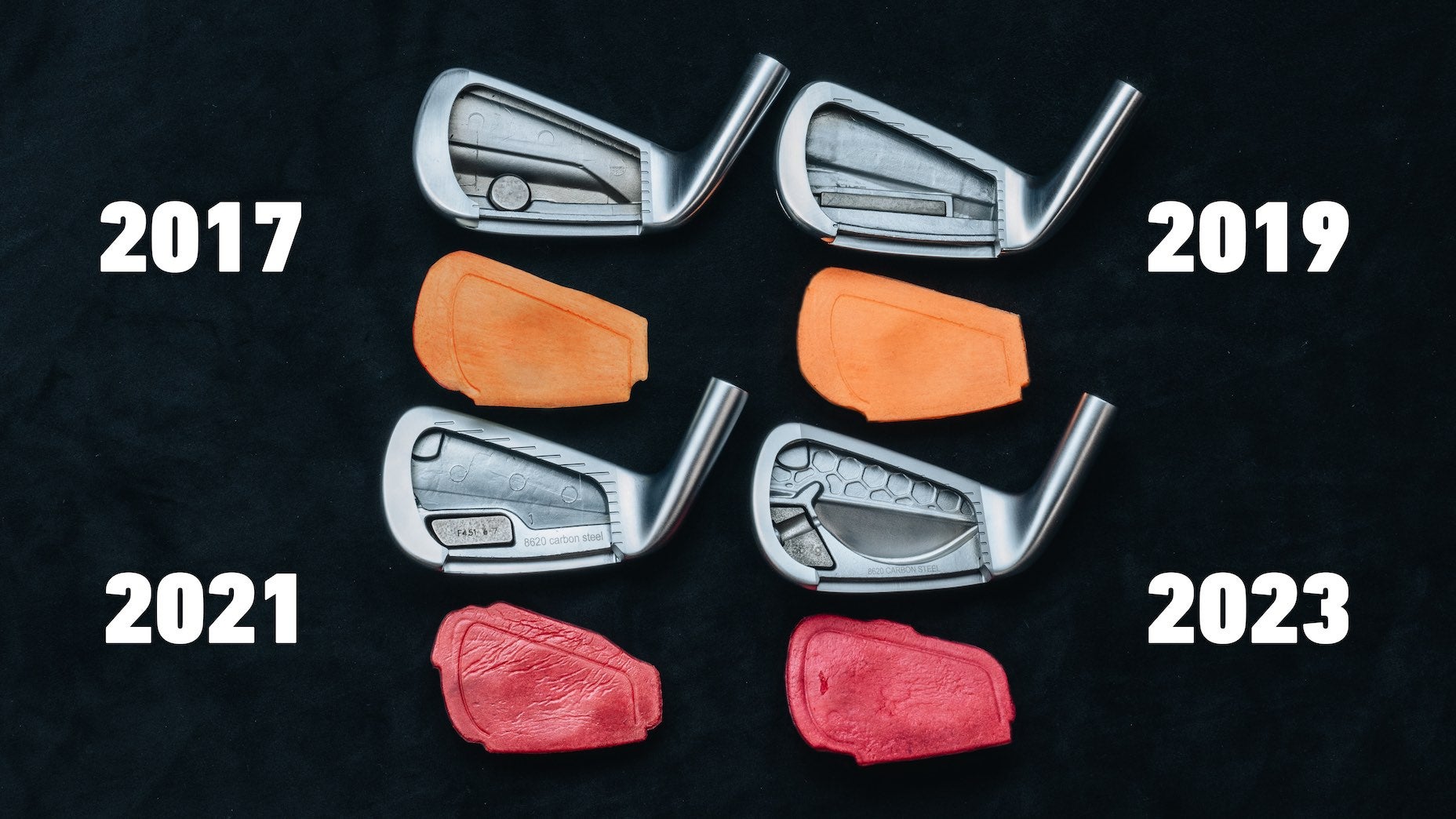
Not to be confused with GOLF.com’s “Mr. Robot,” TaylorMade new engineering genius is a proprietary software that leverages Artificial Intelligence to look at different mass solutions for specific performance targets.
“Each head goes through this AI process,” said Bovee. “We’re not only looking at the stability and center of gravity, we’re also looking at how moving weight around affects the sound and feel of the iron.”
Look closely and you’ll see a slab of tungsten situated in the toe section of the 3- through 7-iron. The tungsten serves a specific benefit, improving launch and overall stability. Only instead of placing it in the same spot throughout the set, the AI software went through tens of thousands of iterations to find the ideal location for each loft in the set. (For example, the tungsten in the 4-iron is driven down deeper in the head to induce a higher launch. It then gets progressively higher leading into the short irons for additional control.)
“We want to make these irons as accurate and consistent as we possibly can,” Bovee said. “Having each iron designed for its unique purpose allows us to make the set better on the whole.”
Something else that should pique the interest of golfers who constantly complain iron lofts are too strong and spin continues to trend downward? The 7-iron generates 150 RPMs more spin than the previous generation for an uptick in stability and control.
“I haven’t met a fitter who isn’t excited about that,” Bovee continued. “And we’re able to do it without sacrificing carry distance.”
The finger
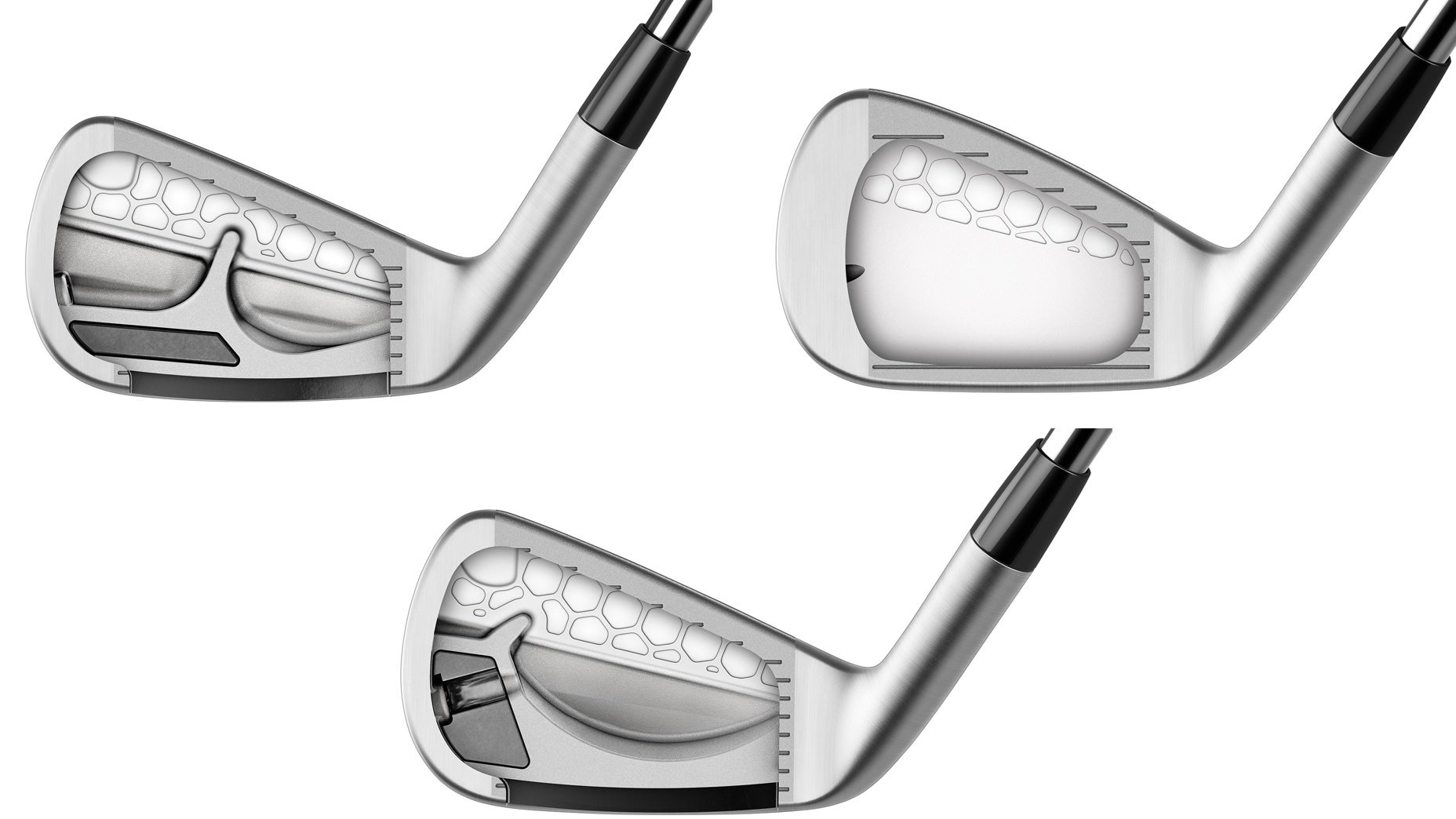
Bovee calls it a “finger,” but the official name is a sound stabilization bar. Positioned next to the tungsten, the bar’s size and shape change depending on the iron. Don’t forget, no two irons are the same.
The goal behind each shape is to tune feel and performance by controlling the unsupported length from the end of the finger to the topline.
“When you do that, you can control how the iron feels by tuning the frequency of the sound that’s created at impact,” said Bovee. “At impact, the topline flexes. And if you can control the rigidity of the topline and unsupported area, you can control the frequency that drives the sound and feel.”
Subtle shaping
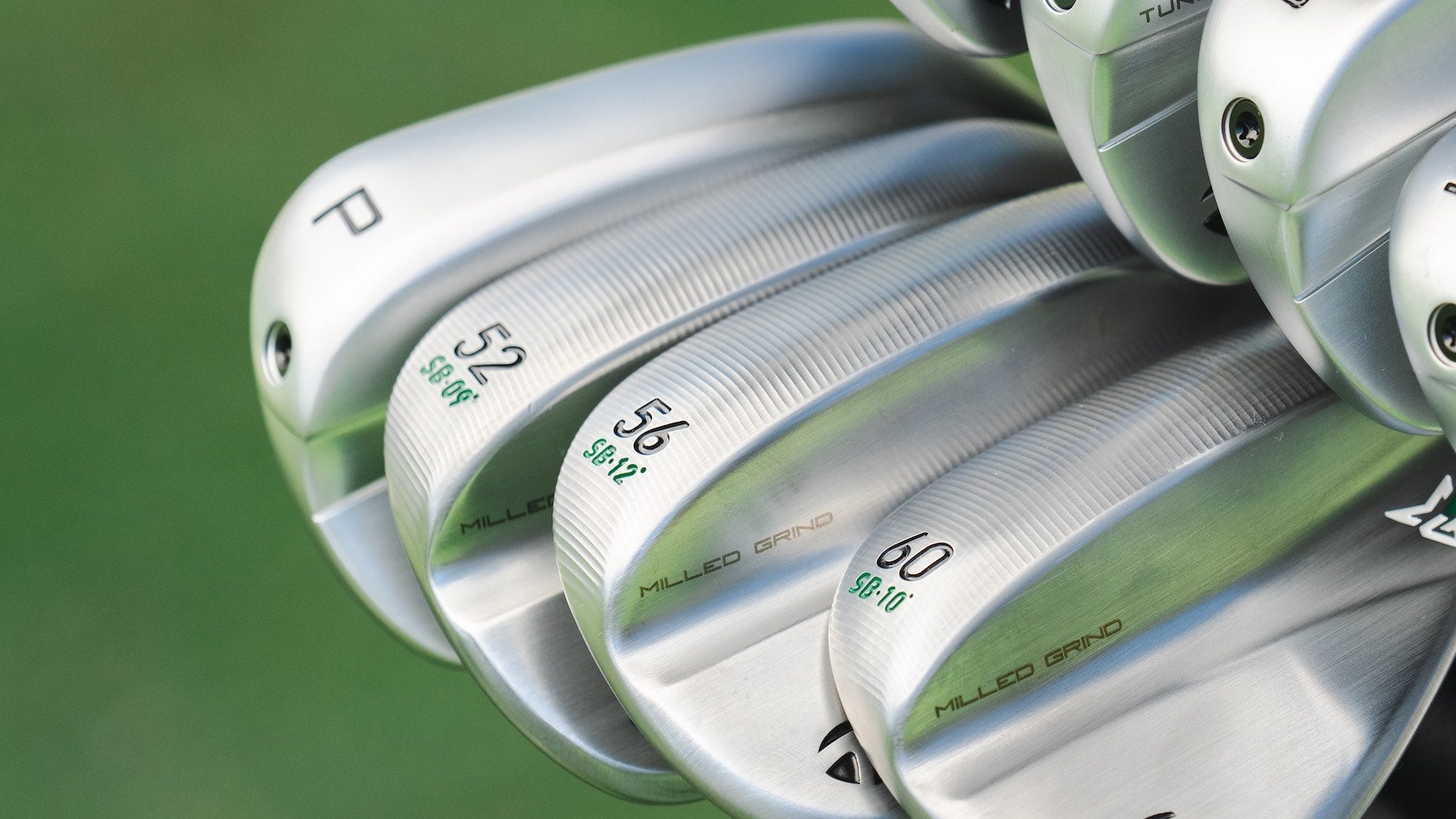
The pitching and gap wedge tend to get overlooked in a player’s distance set due to the simple fact that golfers are generally fixated on forgiveness and ball speed at the top and middle of the set and don’t tend to struggle as much making reasonably good contact inside 130 yards.
But don’t think of the P790 pitching wedge and gap wedge (also know as the AW) as forgotten clubs. As Bovee noted, the team took a closer look at recent sales data and noticed many golfers playing P790 tended to have Milled Grind wedges in the bag as well. So they designed the sole geometry to complement the company’s scoring clubs.
With heel and trailing edge relief, the P790 wedges are meant to go through the ground in a similar manner, while also adding a level of versatility that hasn’t been seen in previous iterations.
Pricing
TaylorMade’s P790 retails for $1,399 (steel/7-piece set) and $1,499 (graphite/7-piece set) and will be available at retail on September 1. The set consists of 3-AW (right-handed and left-handed) with True Temper Dynamic Gold 105 and Dynamic Gold 95 steel or Mitsubishi MMT graphite (55A, 65R, 75S).
Want to overhaul your bag for 2023? Find a fitting location near you at True Spec Golf.



